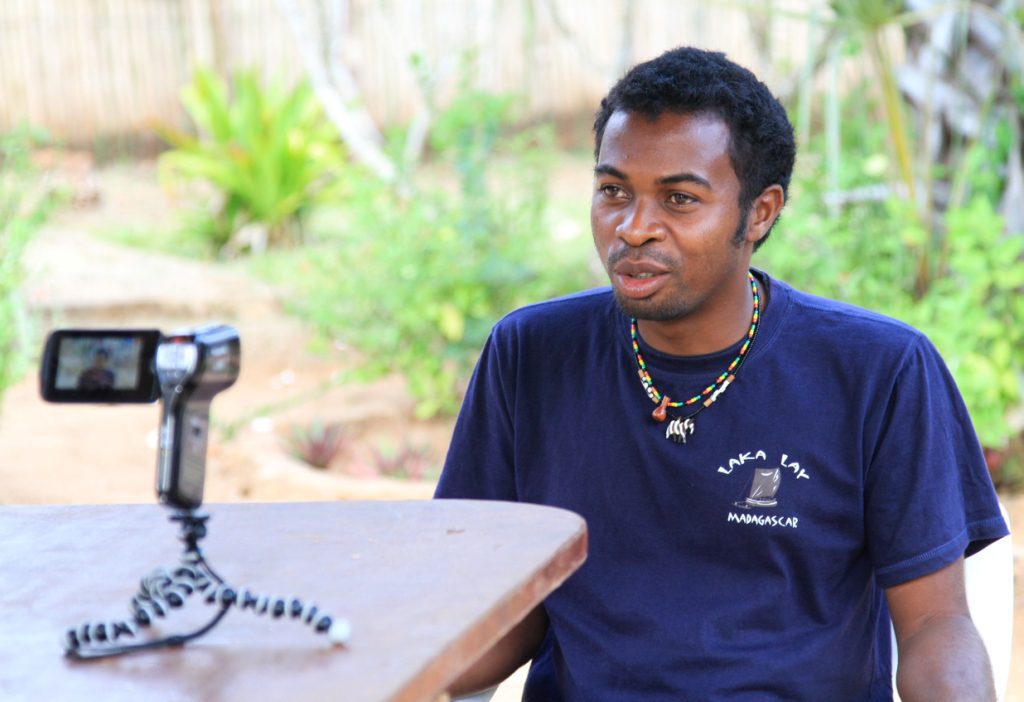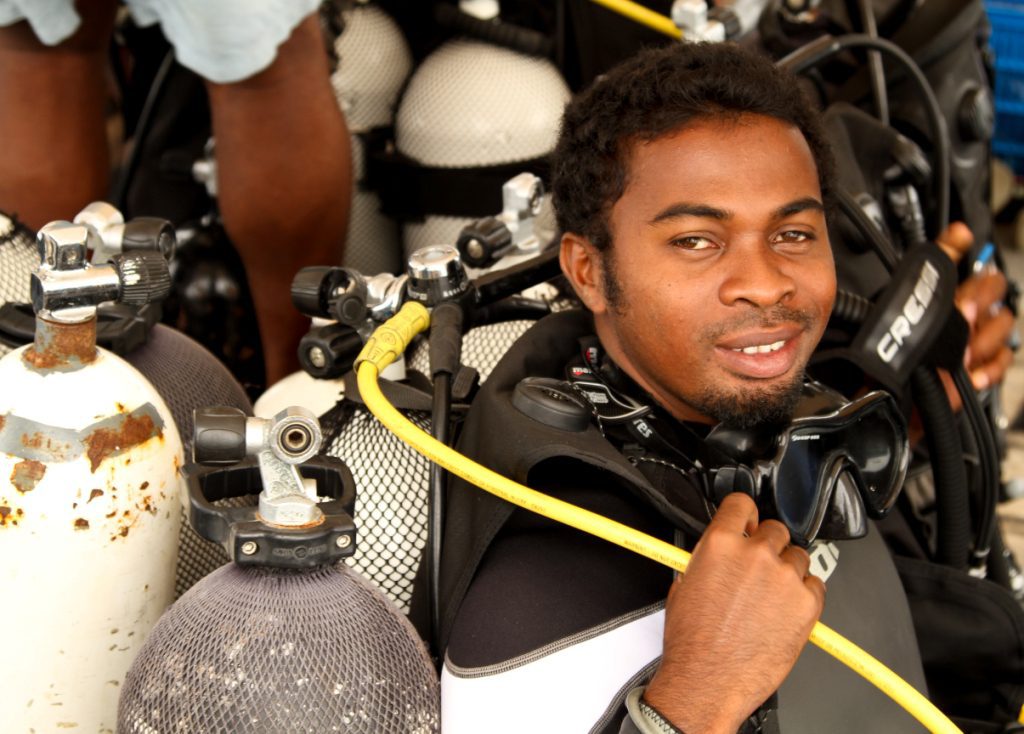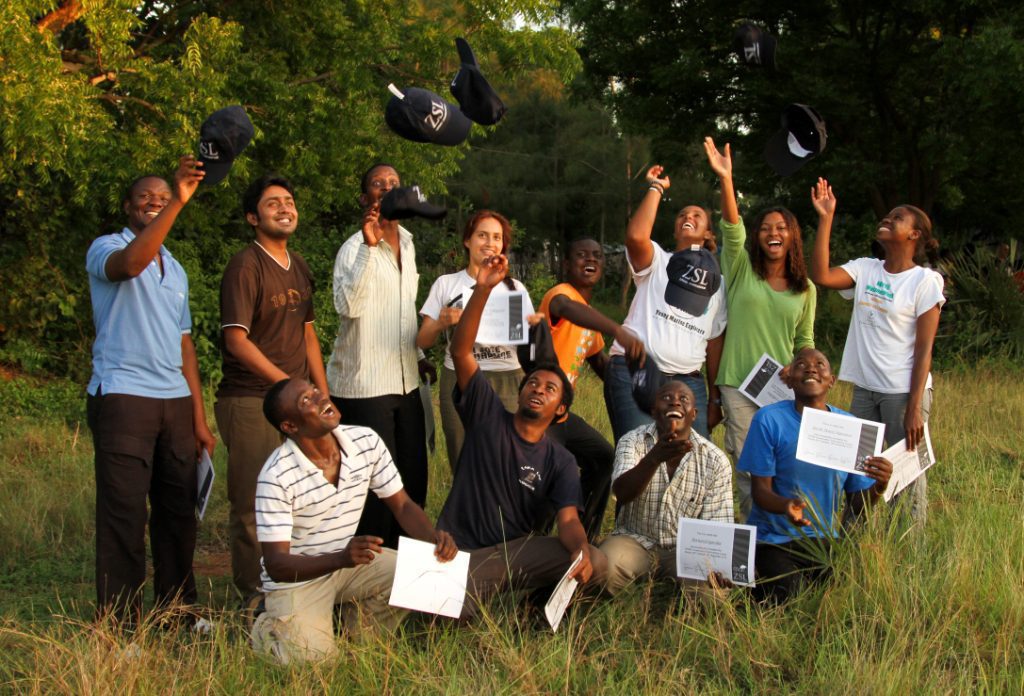by Rado Lebely, Terrestrial & Fisheries Scientist and EDGE Fellowship winner, Madagascar
Who would think that I’ve never been outside of Madagascar, never travelled by plane and never seen an international airport? This reality changed when I was accepted to join a four-week conservation training course in Kenya, organized by the Zoological Society of London. I was chosen to attend after I discovered the existence of a rare coral, Horastrea Indica, near the village of Andavadoaka, our main field site in Madagascar. Two months before the my trip my task was to expand my knowledge of all corals and also to study my coral in depth, which is endemic and one of the rarest and most evolutionarily distinct species existing in the western Indian Ocean.
Life is not always easy when you look at a rare species. The thing is that if you know where to find it, and its specific habitats, it invariably becomes a challenge to find it at all; and I wanted to find more and more colonies. Luckily the recompense for my hard work was that I found Horastrea Indica in almost all of the sites I surveyed.
The time to go to Kenya for the training arrived on 18th of November. I was finally ready, I knew all of my corals, and I was confident of my knowledge about my specific coral. There was just one thing that scared me: to visit a country that I’ve never been to before, meet new people and experience a different culture.
I didn’t have a terrible time at the airport in Antananarivo, Madagascar’s capital. I could find my way, and made it onto the plane easily (to be honest it was just like in movies so I copied what I had seen). Once I arrived in Nairobi, Kenya, the person who was supposed to pick me at the airport wrote my name very bizarrely and I nearly didn’t recognize it.
The day after I headed to Mombasa, and my name was written in the wrong way again! Fortunately, two of the other EDGE fellows recognized me because they said I looked lost. We went straight to Camp Kenya excited to meet the other fellows, the professor and to start the course. The people were very nice, especially the local community. The first day the coordinator of Camp Kenya gave us a village tour – I had a déjà vu feeling because this is exactly what I do with the volunteers who come to do research in Andavadoaka, except this time I was the one being shown around. Like in Andavadoaka, there are also some alternative livelihood activities for the local community, such as chicken farming and fish ponds in the mangroves.
All of the lectures we had were very useful because we received explanations and demonstrations of the theories that were a little bit vague for us before when we studied them on our own. We didn’t only study science and conservation – we also had a very funny lecture on media. The last two weeks we started our field work. The marine fellows, like me, went to a village called Shimoni and the terrestrial fellows went to a national park called Shimba Hill. We surveyed two of the Kenyan Marine Parks and every dive my buddy and I were trying to find all of the rare corals. It was a pleasant coincidence to find out we both study Horastrea Indica. I couldn’t hide my happiness when I finally found four colonies of the species in the Shimoni channel! Unfortunately, we only had two more dives before the end of the course.
When the training certificate ceremony finally came, I knew that it was also time to leave, and time to put into practice everything we had learned.
My trip to Kenya was the most important experience and the most beautiful adventure I’ve ever made. Thanks ZSL! Thanks Blue ventures for letting me participate in this course.




